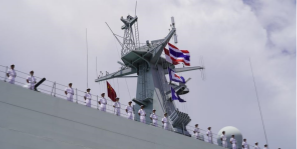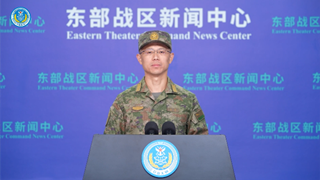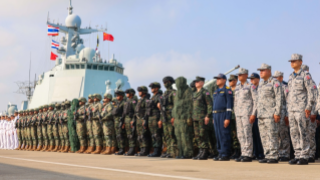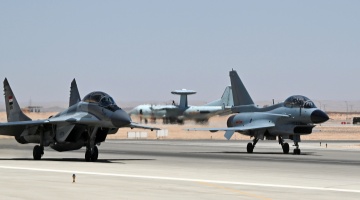BEIJING, Feb. 14 -- "China requires the Philippine side to recognize the high sensitivity and severe consequences of the deployment of Typhon missile system, remove the system as soon as possible to honor its previous open promises, and return to the right track of dialogue and consultations at an early date," said a Chinese defense spokesperson at a press briefing on Friday.
The US Indo-Pacific Command recently said that the Typhon strategic mid-range missile system had been relocated from the Laoag airfield to another location on the island of Luzon, and that the relocation, however, was not an indication that the system would be permanently deployed in the Philippines. The Philippine side said that it would return the Typhon system to the US so long as China stops claiming Philippine territory, harassing Philippine fishermen and attacking Philippine ships.
In response, Senior Colonel Zhang Xiaogang, spokesperson for China's Ministry of National Defense, said that China has made clear multiple times its firm opposition against the US deployment of the mid-range missile system in the Philippines.
"The Typhon missile system is a strategic asset and an offensive weapon. The Philippine side has repeatedly gone back on its words and brought in the system to cater to the US," said the spokesperson, pointing out that such decision would only place the Philippines' own security and national defense in the hands of others, and lead to geopolitical confrontation and risks of arms race in the region. It's like giving an open invitation to the burglar and assisting the evildoer.
The spokesperson mentioned that the territory of the Philippines is defined by a series of international treaties, including the 1898 Treaty of Peace between the United States of America and the Kingdom of Spain, the 1900 Treaty between the United States of America and the Kingdom of Spain for Cession of Outlying Islands of the Philippines, and the 1930 Convention between His Majesty in Respect of the United Kingdom and the President of the United States regarding the Boundary between the State of North Borneo and the Philippine Archipelago.
"China's Nansha Qundao and Huangyan Dao fall outside the Philippine territory defined by these treaties," said the spokesperson, adding that China's law-enforcement activities in relevant waters are reasonable, lawful and beyond reproach.
"By using the deployment of Typhon as a bargaining chip on the South China Sea issue, the Philippine side is selling out its own national security, putting the well-being of its people and regional peace and stability at grave risks. Such behavior is ridiculous and very dangerous," said the spokesperson.
The spokesperson urged the Philippine side to recognize the high sensitivity and severe consequences of this issue, remove the Typhon missile system as soon as possible to honor its previous open promises, and return to the right track of dialogue and consultations at an early date.
The spokesperson stressed that China will continue to take necessary measures to resolutely counter provocations and infringements and safeguard China's territorial sovereignty and maritime rights and interests.













